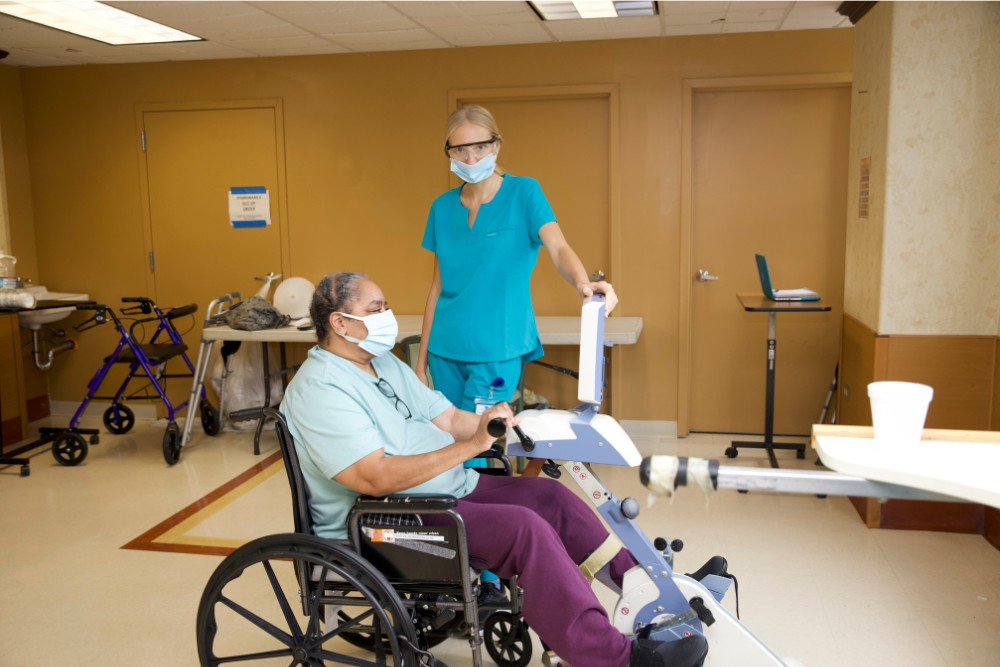Muscle Weakness in Adults: Causes and Complications
After exercising or moving heavy items, your body may feel more tired than usual. Such muscle weakness is usually temporary, lasting a few hours or days after strenuous activity. But muscle weakness could indicate serious issues, including concerning health conditions. Learning possible causes could help you prevent severe complications or long-term damage.
Weakness often makes performing normal daily tasks difficult, and rebuilding those muscles won’t happen overnight. You may require regular exercises or customized physical therapy to regain strength safely and manage related conditions. Low-impact exercises and gradual increases in intensity with a trained therapist’s guidance are often recommended. One of the causes can be a neurological condition, such as multiple sclerosis. It is crucial to find out what underlying cause is.

Is Muscle Weakness Serious?
Unfortunately, muscle weakness could indicate something more concerning, which we’ll discuss below. It can be serious, depending on the underlying cause. While temporary muscle weakness due to overexertion, fatigue, or minor injuries is usually not a major concern, persistent or unexplained muscle weakness could be a sign of a more serious condition.
Weakness and fatigue are words often used interchangeably, though they refer to different issues. While fatigue occurs when you over-exert yourself or lack sleep, weakness happens when the muscles lose strength. Tired muscles may be sore, while weak ones strain to lift even light objects or perform natural movements.
There is no single cause of such weakness. In fact, it could relate to various issues. It could temporarily result from minor illnesses, such as the flu. Once you start moving about, engaging in physical activities regularly and eating healthy meals again, your strength may return.
Causes
One of the most common causes of adult muscle weakness is physical inactivity. When you don’t use your muscles, they lose mass and strength. The longer you allow the muscles to waste away, the more difficult it is to regain what you’ve lost. Even the simplest tasks become challenging, such as gripping a pen, tying laces, or taking a few steps.
Medications always come with risks, including negative effects on your muscles. For instance, statins and other lipid-lowering medications cause several muscle issues, including weakness, cramping, and rapid breakdown. Corticosteroids and antiarrhythmic medications may also cause such problems, so must be taken carefully.
Neuromuscular disorders alter the nerve cells associated with movement and communication between the muscles and brain. Such disruptions cause the cells to change and die, resulting in muscle breakdown, weakness, and atrophy. Multiple sclerosis, muscular dystrophy, myopathy, peripheral neuropathy, and ALS are conditions related to muscle damage.
Several other medical conditions could also result in muscle issues. For instance, strokes occur without warning, often causing sudden weakness, confusion, headache, and loss of coordination 5. Graves’ disease, hypothyroidism, hypokalemia, herniated discs, and chronic fatigue syndrome also include muscle weakness as a possible symptom.
Knowing and understanding what causes your weakness can help improve the condition.
Signs and complications
When fatigued, you often lack the motivation to do anything. Weakness is different, preventing you from doing tasks you’re attempting. Lifting objects, even light ones, becomes more difficult. It’s harder to raise your arm above your head, grip objects, or lift yourself from a sitting position.
Muscle weakness can make it difficult to walk, stand, or perform everyday activities. Over time, this can lead to decreased mobility, requiring the use of assistive devices or dependence on others for daily tasks.
Weak muscles, particularly in the legs, can increase the risk of falls, which may lead to fractures, sprains, or other injuries. This is especially concerning for older adults.
Muscle weakness often causes loss of muscle tissue, resulting in atrophy. As the muscles shrink, your limbs become smaller, and you may notice numbness and tingling. In lower muscles, balancing and walking are affected, while facial atrophy could cause speaking or swallowing problems.
Resources:
- NCBI, Weakness and Fatigue
https://www.ncbi.nlm.nih.gov/books/NBK326/ - Harvard Health Publishing, April 10, 2023, Don’t let muscle mass go to waste
https://www.health.harvard.edu/staying-healthy/dont-let-muscle-mass-go-to-waste - PubMed, Aug 5, 2010, Effects of statins on skeletal muscle: a perspective for physical therapists
https://pubmed.ncbi.nlm.nih.gov/20688875/ - Cedars Sinai, Neuromuscular Disorders
https://www.cedars-sinai.org/health-library/diseases-and-conditions/n/neuromuscular-disorders.html - NHLBI, Stroke Symptoms
https://www.nhlbi.nih.gov/health/stroke/symptoms - Cleveland Clinic, Muscle Atrophy
https://my.clevelandclinic.org/health/diseases/22310-muscle-atrophy
This article is for educational and informational purpose only and does not substitute for professional medical advice. For any questions about your own health condition, speak to a qualified physician or healthcare provider.







Leave A Comment